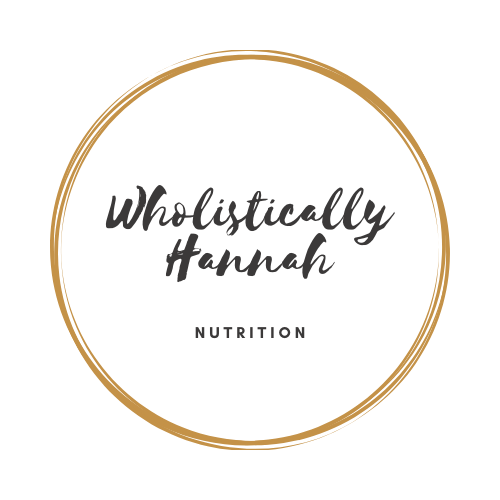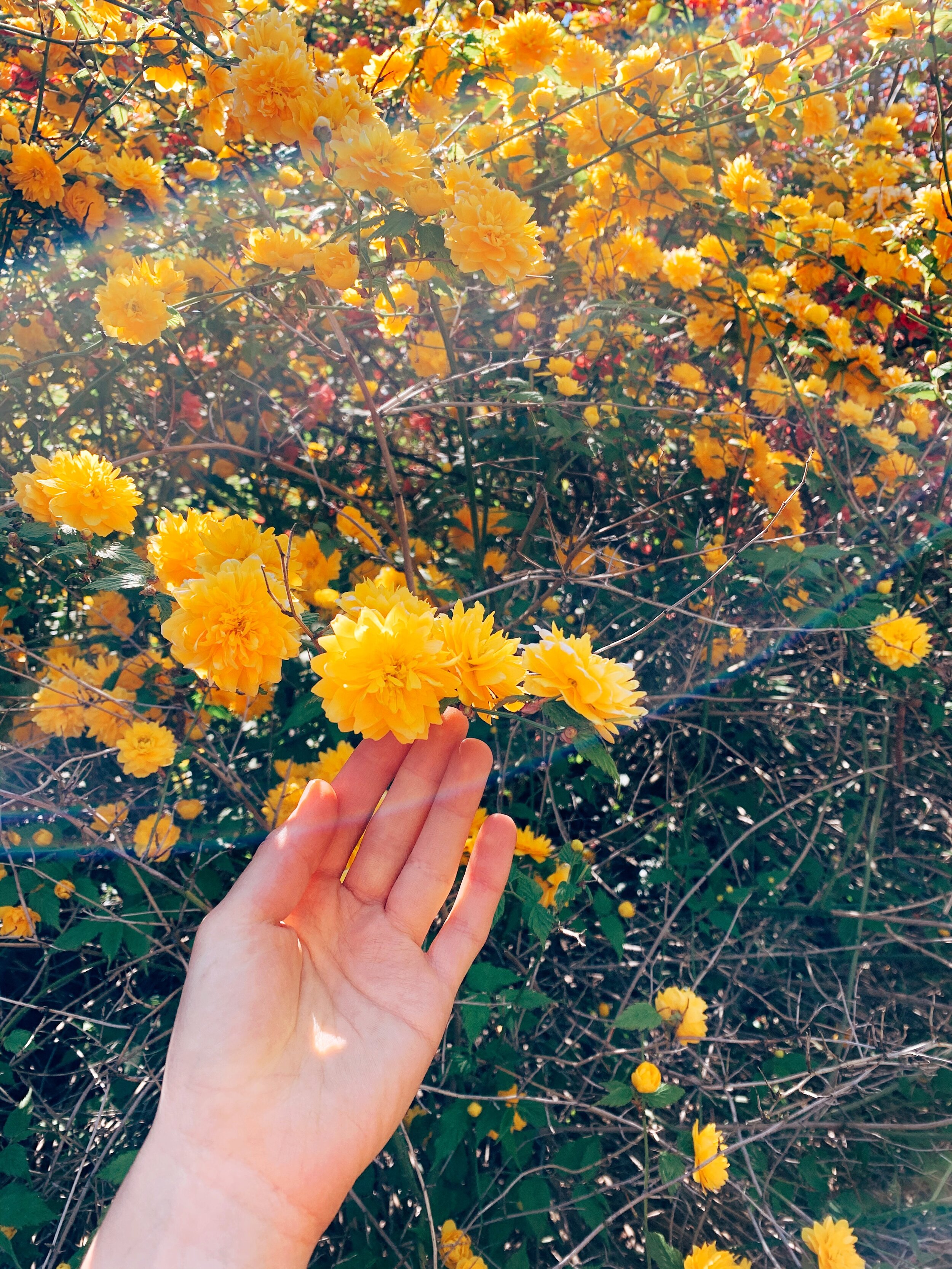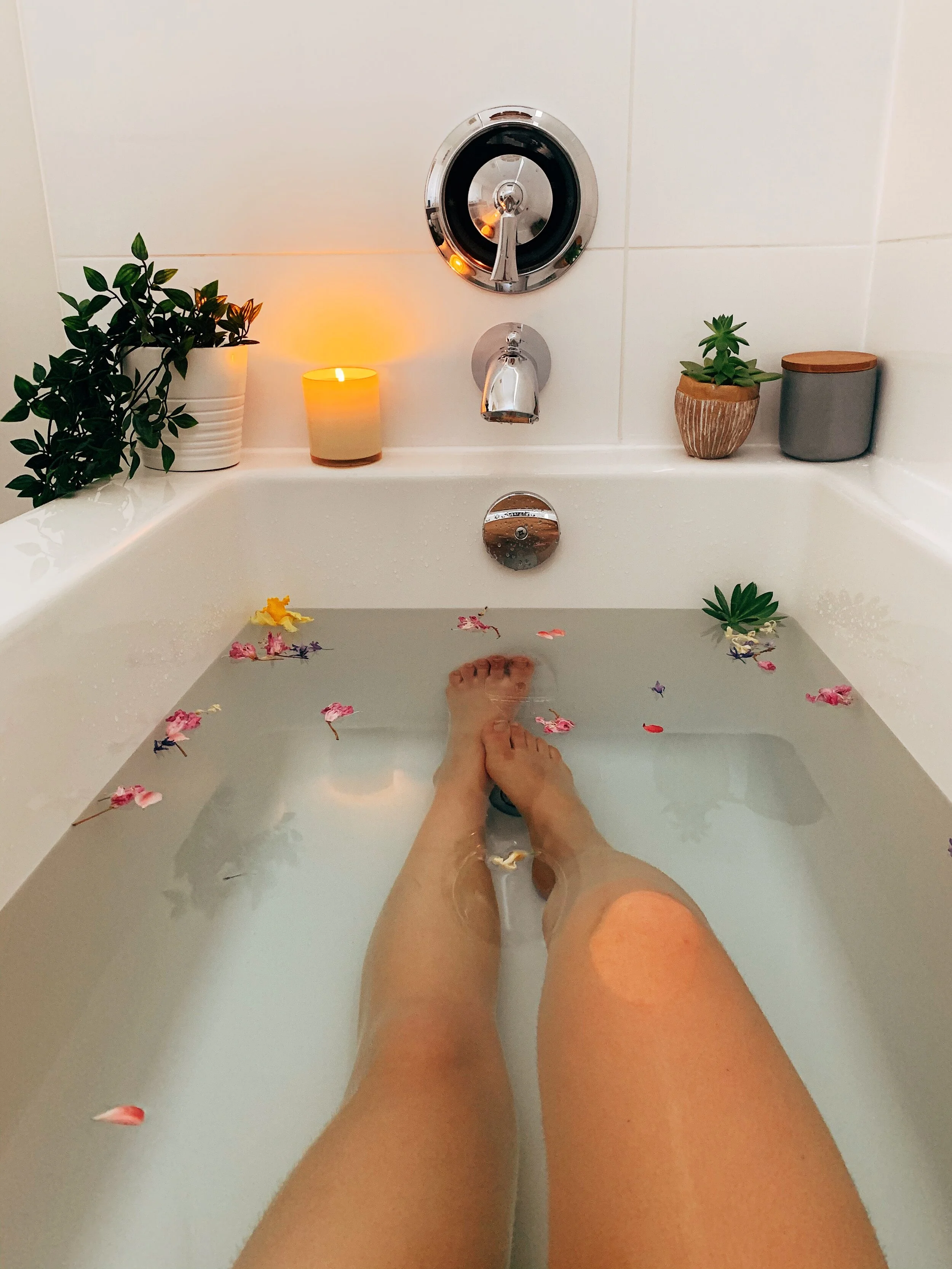Healthy Pantry Staples
/Welcome to my pantry!
I like to take a balanced approach with food.
That means no labels, and nothing strictly off limits. My version of balance looks like finding healthier options for all the classic pantry staples. Truly enjoying what we eat and having fun with food is most important. And I believe we CAN create healthier versions of all our favourite recipes. It just comes down to choosing more wholesome alternatives, and releasing fear around trying new things.
What's "healthy", and what's not?
Everyone has a different definition of healthy. I personally like to think that healthy = whole. This means choosing foods in their most real, close-to-the-earth state as possible. For example, a potato vs potato chips. Steel cut oats vs packaged granola. Dates vs granulated sugar. Do you get the idea?A note on product quality - I try to buy organic whenever possible. This is especially important for pantry items like grains, nuts, and seeds, as these crops are heavily sprayed with toxic chemicals when conventionally grown. Just do the best you can, and let go of the need to follow this perfectly. Even choosing organic for one or two products every week makes a huge difference over time.
The List:
Flours
Almond - My personal favourite substitute for wheat flour.
Coconut - A little trickier to bake with, but a staple for paleo or grain-free recipes.
Buckwheat - I love using buckwheat for pancakes or homemade bread.
Oat - Just grind up rolled oats to make your own!
Chickpea
Cassava
Oils
Coconut oil - look for cold-pressed, organic, and virgin. My favourite for baking!
Olive oil - Best for salad dressings and medium-low heat cooking. Stick to extra-virgin.
Avocado oil - Best for frying and high-heat baking (this oil doesn't oxidize at high temperatures!)
Ghee - Another delicious option for frying or spreading on toast. It's also incredibly healing to our gut.
MCT oil - MCT gives us a quick burst of energy and noticeably improves brain clarity. Ideal for blending into your morning smoothie or latte.
Sweeteners
Honey - My favourite natural sweetener. Honey contains medicinal properties and antioxidants. It's also extra-sweet, so you can use less when subbing for sugar. A little goes along way!
Maple Syrup - Perfect for sweetening baked goods or drizzling over paleo pancakes, gf french toast, coconut yogurt, or oatmeal bowls.
Dates - I love using dates to naturally sweeten things like smoothies, bliss balls, or raw desserts.
Stevia - I have a love-hate relationship with stevia. While stevia is a plant and natural zero-sugar alternative, it's still considered an 'artificial sweetener'. I think it's best used in moderation, and comes down to the type of stevia you buy. Some varieties are MUCH more processed then others. Look for a liquid stevia over powdered (this means it's been less processed), and make sure it's 100% organic stevia leaf in it's purest form.
Monk fruit - another plant sourced, zero-sugar alternative. It's more sweet than sugar, so a little goes along way.
Grains
Rolled oats - I buy certified gluten-free. Stick to rolled or steel cut, and avoid instant oats as they're more processed.
Buckwheat groats - Perfect for making homemade flours or grain-free porridge!
Quinoa
Brown or wild rice
Nuts & Seeds
I always look for raw over roasted and organic whenever possible. Make sure there's only one ingredient, and avoid products with added salt or oils.
Nuts: Almonds, walnuts, cashews, hazelnuts, pecans
Seeds: Chia, hemp, pumpkin, sunflower, sesame
Protein Powders
I like to stick to protein powders with minimal ingredients. Think: plant-based seed or legume sourced proteins!
Hemp protein
Pea protein
Pumpkin seed protein
Speciality Items
Nut butters - Cashew, peanut, almond, and tahini are my favourites
Shredded coconut or coconut flakes - Make sure they're unsweetened!
Cacao powder - The raw, unprocessed version of cocoa powder.
Collagen peptides - Incredibly healing for our gut.
Packaged Snacks
Before I buy any sort of packaged products, I like to ask myself:
Do I know what all these ingredients are?
Could I make this at home?
Is this REAL food?
Larabars - Super minimal, whole-foods ingredients. Typically just dates and nuts!
Low-sugar granola - I love Rawcology's grain-free, low-sugar, sprouted granola
Organic popcorn - I LOVE LesserEvil's coconut-oil and ghee popcorn
Healthy Shopping on a Budget
Buying organic and high-quality products can be pricey. Thankfully, more and more well-known stores are beginning to lower prices and make healthier options more accessible to everyone.
Your local farmer's market - The best place to buy fresh fruits and in-season vegetables.
Costco - Costco is FULL of healthy / organic products, and the selection is constantly growing. It's the best place to bulk items like nuts, seeds, nut butter, cooking oils, organic frozen fruit, fermented vegetables, kombucha, and organic meat. They even sell larabars in bulk!
Amazon - The most selection of affordable organic nuts, seeds, flours, and grains I've found so far.
Whole foods - My favourite spot for finding fun, speciality items like interesting nut butter and healthy chocolate.
Superstore - Surprisingly, Superstore is gaining an incredible selection of (extremely affordable!) natural groceries. This is an excellent place to if you want to experiment with healthier options, but follow a tight budget. They have everything from organic product and nut milk, to vegan protein powder and coconut chips.
Where do you like to shop? And what are your go-to healthier pantry staples? Please share your tips, tricks, and favourite products below!








